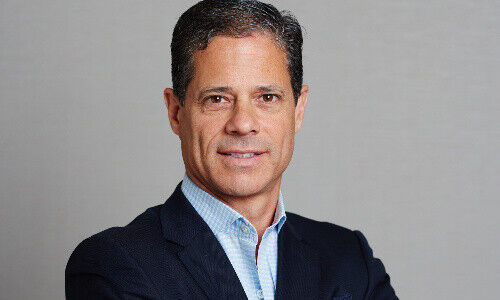Lawrence Calcano, the man who co-headed the group that took eBay public, talks to finews.com about responsibly democratizing alternative investments as an asset class.
Access to alternative investment was and still is to a great degree, a rarefied asset class only the very wealthy have access to, conjuring up images of men in bespoke suits making deals in a clubby atmosphere or at the local yacht club over cigars and whiskey.
But that is changing as companies are looking to tap into that market and offer alternative investments to a wider array of investors.
High Hurdle to Entry
Historically, private equity managers, or a hedge fund, would take large commitments from a small number of investors where the minimum entry point was one million dollars or even up to $20 million which meant that they were largely targeted at institutions.
What was lacking for broader access was a structure allowing private investors to put, for example, $100,000 into 10 different funds and diversify their portfolios, and still have a large commitment in the asset class, making access broader and more democratic.
To get some insight into this process, finews.com sat down with CEO Lawrence Calcano who joined iCapital shortly after it was founded in 2013 to make alternative investments accessible to wealth advisors and their high-net-worth investors.
Paradigm Shift
«In the past, all of that value creation within the private markets was in the hands of institutional investors. And that's why the banks and wealth managers want now to facilitate access for their clients. That's where we come into play,» he says.
Traditionally, companies would go public to raise cash for expansion, but the paradigm is shifting to the benefit of those with access to private sources of capital.
«A lot of the value creation is happening when companies are private. And companies are staying private for longer,» Calcano says.
Democratization Process
When it comes to alternative investments, choosing the correct manager is critical, he says, pointing out that the difference between the top and third quartile of managers at long-only funds might be around 200 basis points.
Among private equity managers, however, the difference could be 1,000 basis points, and «if you're in the wrong managers, you won't get those returns.»
As a result, one of the really important things that we provide in the democratization process is access to top-quartile or higher-performing managers, because in this asset class «manager selection is key to success,» Calcano says.
Identifying Opportunity
eBay, a company that Calcano helped to take public, is an example of an enabler connecting buyers with sellers. «We see this opportunity today, where you've got alternative fund managers who want to access capital, and you have wealth managers who want to access these kinds of alternative investment opportunities for their high-net-worth clients,» he says.
With that in mind, iCapital was created as a technology platform to bring the two sides together. Tailoring its partnership offerings based on what a particular client's needs are.
UBS, for example, «doesn’t need our help in finding managers or diligence managers. But we can create their alternative investing infrastructure, power it with our technology, and build out their alternative ecosystem,» he says. UBS strengthened its association with iCapital last year to use its platform to serve wealthy clients in Switzerland and Asia, as finews.com reported.
Similarly, a partner like Blackstone does not need help in product distribution, but rather a digital solution to process its products because its platform was built for institutional investors and not the smaller tickets from a high-net-worth individual.
Cheap Cash
But not everyone is as sanguine about democratizing private capital markets, even if there seems to be an air of inevitability surrounding it.
With the financial markets awash in cheap cash from accommodative central banks, that money was looking for a home. In addition, regulatory changes have made alternative investments available to more investors.
Late last year, Elif Aktug, the first female managing partner at Pictet, wrote for finews.com «The result is a fresh and growing flow of capital into private markets. Much of this is coming from investors who, until very recently, had found private equity largely out of reach. On a theoretical level, none of this sounds especially problematic. However, it is not happening in a vacuum but in the current environment of excessive liquidity fueled by central banks.»
Financial Markets
That excess liquidity is now being drained as major central banks are tightening their policies in the face of spiking inflation.
Aktug further states that unsophisticated investors require a clear understanding of private equity fees which are not always transparent. She allows that it is inevitable the «democratization pressure will only continue and if done correctly can be positive», allowing for portfolio diversification and better potential returns.
She wrote that «the next cyclical downturn could have an outsized impact on investors who are not as well equipped to deal with it. With little prior knowledge, private equity investment by retail investors with little or no advice is unlikely to lead to success.»
With developments in the global financial markets following Russia's invasion of Ukraine, that downturn has arrived.
Educating for Success
Calcano also addressed this point and said that understanding alternative investments is a key element in making the right decision.
When iCaptial works with wealth managers, who take the time to educate their advisors and clients about alternatives and understand their needs, both will be better positioned for success, he says.
«Knowledge and education are paramount,» he stresses, and «we believe fundamentally, that working with wealth managers and their advisors is the appropriate and responsible way to democratize this asset class; these types of important investment decisions should be made with the support of a trusted advisor,» he says.
Calcano goes on to offer the observation that «we feel like we're in the early innings of a very exciting journey,» but didn't specify whether that was a reference to baseball or cricket.



































